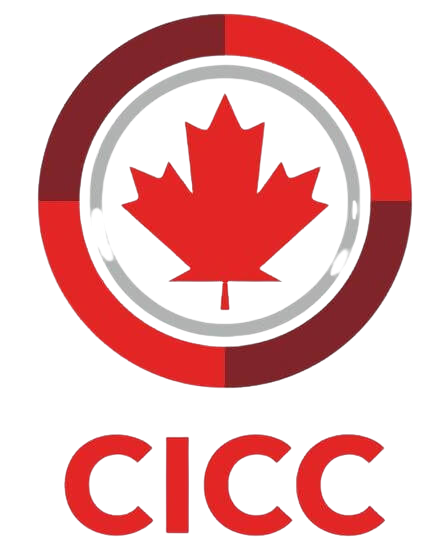Canada, with its diverse culture, strong economy, and excellent quality of life, continues to attract individuals from around the world. For couples looking to build their lives together in Canada, the spouse visa Canada program offers a pathway to reunite and start a new chapter. However, recent updates to the spouse sponsorship Canada rules and requirements in 2024 have brought about significant changes. Couples must now understand a new set of criteria and regulations. In this guide, we will explore the latest updates to the spouse visa Canada rules, understand the eligibility criteria, document requirements, and the implications for couples seeking to reunite in this welcoming country.
Changes in Spouse Visa Rules
The rules for spousal visa Canada underwent significant changes in 2024 with the introduction of new regulations by Immigration, Refugees, and Citizenship Canada (IRCC). In 2023, the spouse sponsorship Canada eligibility criteria were centered around marital status, age, financial capability, criminality checks, and medical examinations. Applicants needed to be legally married or in a valid common-law partnership, with both partners at least 18 years old. Financial support for the sponsored spouse and dependents, police clearance certificates, and medical examinations were also required.
However, as of January 22, 2024, this eligibility criterion has been revised. Now, partners and spouses of international students pursuing master’s or doctoral degree programs in Canada are eligible for a Spousal Open Work Permit (SOWP).
New Rules and Requirements for Spouse Visa in Canada 2024
Canada has introduced new rules and requirements for the Spousal Open Work Permit (SOWP) and the spouse sponsorship Canada program in 2024. Despite these changes, students still have pathways to bring their spouses to Canada. Here’s an overview of the new rules and available options:
- Application Submission Date: Indian students who submitted their applications before March 19, 2024, are still eligible to bring their spouses under any program, including both diploma and degree courses.
- Eligible Degree Programs: Under the new regulations, only students enrolled in certain professional degree programs can bring their spouses. These include:
- Doctor of Dental Surgery (DDS, DMD)
- Bachelor of Law or Juris Doctor
- Doctor of Medicine
- Doctor of Optometry
- Pharmacy (PharmD, BS, BSc, BPharm)
- Doctor of Veterinary Medicine (DVM)
- Bachelor of Science in Nursing
- Bachelor of Education (BEd)
- Bachelor of Engineering
- Additional Requirements for Medical Streams: For programs like pharmacy and nursing, students may need to meet extra mathematics requirements to apply for a spousal visa Canada.
- Options for Arts and Non-Medical Fields: Students in fields such as engineering, law (LLB), or education (BEd) are also eligible to bring their spouses to Canada.
- Pending Applications: The new rules affect applications submitted after March 18, 2024. Applications filed before this date but rejected are also subject to the new regulations.
- Alternatives for Rejected or Late Applications: Students can bring their spouses after completing their studies and obtaining a work permit, which might require waiting for up to three years. Alternatively, students could switch to a Master’s or PhD program that allows immediate spousal sponsorship, though this may involve additional costs.
- Visitor Visa Option: If switching programs isn’t possible, students can bring their spouses on a spouse visitor visa Canada. However, spouses will not be allowed to work under this visa.
- LMIA Work Permit: If students are eligible, obtaining a Labour Market Impact Assessment (LMIA) could help them secure work permits and sponsor their spouses.
These adjustments highlight Canada’s evolving immigration and education policies. For international students from India and elsewhere, staying informed is crucial in exploring the best available options for bringing their spouses while studying in Canada.
Increased Scrutiny of Marriages of Convenience
To combat fraud, there will be heightened scrutiny of marriages of convenience. Immigration authorities will closely examine the authenticity of the relationship between the sponsor and the sponsored spouse. This may involve interviews, document verification, and other investigative measures to ensure the marriage is not solely for immigration purposes.
Language Proficiency Requirement
The sponsored spouse may now be required to prove their language proficiency in English or French through standardized tests, such as the International English Language Testing System (IELTS) or the Test d’évaluation de français (TEF).
Financial Sponsorship Obligations
Sponsors will face increased financial obligations. They will need to financially support the sponsored spouse and any dependent children for a longer duration. This commitment ensures newcomers have the financial stability they need to settle and integrate into Canadian society. The minimum necessary income to sponsor spouse in Canada has been raised to ensure that sponsors can adequately support their spouse and family.
Lengthened Processing Times
Due to increased scrutiny and additional requirements, Canada spouse visa processing time may be longer. Processing times for spouse sponsorship Canada applications are likely to increase as well. Planning your application well in advance and preparing for potential delays is essential.
Why Choose Croyez Immigration?
As you embark on your journey to apply for a spouse visa Canada in 2024, you may wonder why choosing Croyez Immigration is the right decision. Here are some reasons:
- Expertise: Croyez Immigration is a trusted name in immigration consultancy, with experienced professionals well-versed in the latest Canadian immigration regulations.
- Personalized Guidance: We understand that every case is unique. Croyez Immigration provides personalized guidance tailored to your situation, ensuring you meet all new spouse visa Canada requirements.
- Up-to-Date Knowledge: Our team stays current with the latest immigration policies and changes, including those introduced in 2024.
- Document Assistance: We help you prepare and organize all necessary documents, reducing the chances of errors or omissions that could lead to delays or denials.
- Application Support: Croyez Immigration will guide you through every step of the application process, from assessment to submission and follow-up.
- Reduced Stress: Navigating the spouse sponsorship Canada application process can be stressful. With Croyez Immigration by your side, you can have peace of mind knowing that experts are handling your case.
The new rules and requirements for spouse visas Canada in 2024 bring both challenges and opportunities for couples hoping to reunite in this welcoming nation. Successfully managing these changes requires careful planning, attention to detail, and expert guidance. If you are in Kochi, India, and need immigration consulting services, Croyez Immigration can be your trusted partner. With our expertise and personalized support, you can confidently navigate the complexities of the spouse visa Canada application process and move toward a smoother path to reuniting with your loved one in Canada.
Conclusion
The 2024 updates to the spouse visa Canada program bring important changes that applicants must carefully consider. With new eligibility criteria, financial obligations, and processing time adjustments, staying informed and prepared is key. Working with experts like Croyez Immigration can ensure a smooth and successful application process. Whether you’re seeking spousal sponsorship Canada or a spouse visitor visa Canada, expert guidance can help navigate the complexities. Take the necessary steps today to reunite with your loved one in Canada.
Faqs
1. Is there a spouse visa update for Canada in 2024?
Yes, Canada has introduced several updates to the spouse visa Canada and spouse sponsorship Canada rules in 2024. These changes focus on eligibility requirements, documentation, and processing times. Notably, international students enrolled in specific degree programs can now bring their spouses through an Spousal Open Work Permit (SOWP), and there has been a shift in the scrutiny of marriage authenticity.
2. What are the new rules for the Canada spouse visa in 2024?
The new rules for the Canada spouse visa in 2024 include stricter eligibility criteria for international students who wish to bring their spouses with them. Only students enrolled in specific professional degree programs, such as Doctor of Dental Surgery (DDS), Doctor of Medicine (MD), or Master’s/PhD degrees, are eligible to sponsor their spouse for a visa. Additionally, applicants must now prove the authenticity of their relationship more rigorously.
3. How long does spousal sponsorship take in Canada in 2024?
The Canada spouse visa processing time and spousal sponsorship Canada application times have increased in 2024 due to new regulations and more detailed scrutiny of applications. Processing times may vary depending on the applicant’s country of origin and the complexity of their case. On average, it can take anywhere from 12 to 24 months to complete the process. Always consult with an immigration consultant to get the most accurate timelines for your situation.
4. What are the rules for a spouse visa in Canada?
To qualify for a spouse visa Canada, you must meet specific criteria, including being legally married to a Canadian citizen or permanent resident, or having a valid common-law partnership. Your sponsor (the Canadian citizen or permanent resident) must demonstrate their ability to financially support you, as well as meet the minimum necessary income to sponsor spouse in Canada. Additional requirements include background checks, medical exams, and possibly proving the authenticity of your marriage.
5. Can my spouse apply for a work permit while waiting for the spouse visa in Canada?
Yes, spouses of international students who are enrolled in eligible programs can apply for a spousal open work permit under the new rules. However, if the student is not enrolled in a qualifying program, the spouse may have to wait until the student completes their studies and obtains a work permit to apply for a work visa.









